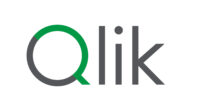|
|
This video is part of the appearance, “Qlik Presents at TFDx Qlik Connect 2025“. It was recorded as part of Tech Field Day Experience at Qlik Connect 2025 at 12:30-16:30 on May 12, 2025.
Watch on YouTube
Watch on Vimeo
In this session at Tech Field Day Experience at Qlik Connect 2025, Qlik unveiled and explored its new Qlik Open Lakehouse initiative, an outcome of the company’s acquisition of Upsolver. The presentation focused on the growing market adoption of Apache Iceberg, an open table format for data lakes, driven by its advantages in cost savings and interoperability. Ori Rafael highlighted the transition from traditional, tightly coupled data warehouses to decoupled data lakehouses using Iceberg. This shift enables enterprises to eliminate redundant warehouse storage costs by directly writing to cost-efficient object storage like Amazon S3. Furthermore, Iceberg allows customers to decouple compute from storage and use multiple analytics engines (like Snowflake for BI or Databricks for AI) on a unified data layer, enabling a truly open and flexible data architecture.
Qlik’s acquisition of Upsolver has enhanced its capabilities to deliver an enterprise-grade, high-performance lakehouse solution. The Qlik Open Lakehouse, now integrated into Qlik’s Talend Cloud platform, provides high-throughput ingestion, real-time processing, and automatic optimization of Iceberg tables. This includes features such as adaptive file compaction, dynamic partitioning, and efficient snapshot cleanup to keep storage lean and query performance high. Ori shared benchmarks demonstrating that Iceberg tables managed by Upsolver could achieve query performance nearly on par with native Snowflake storage, while offering as much as 2x improvement in storage efficiency over other Iceberg implementations. This level of performance addresses previous shortcomings of Hadoop-based data lakes and provides a practical, streamlined experience that doesn’t require specialized big data engineering expertise.
Antoine Richard and Vijay Raja elaborated on Qlik Open Lakehouse’s integration into Qlik Talend Cloud, detailing its core capabilities that support ingestion from hundreds of sources via batch or CDC, optimizer services tailored for Iceberg, and seamless mirroring into Snowflake without duplicating data. They outlined support for Iceberg catalogs like AWS Glue, Polaris, and Snowflake Open Catalog, enhancing query engine compatibility across platforms like Spark, Trino, and Dremio. The product roadmap includes enhancements like streaming ingestion, support for additional cloud providers, and advanced transformation tooling, reinforcing Qlik’s mission to provide an end-to-end data integration platform. A recorded demo concluded the session, illustrating how users can build data pipelines into Iceberg via Qlik Talend Cloud, view data in Athena or Snowflake, and perform seamless transformations, all while maintaining a familiar UI and minimizing the need for warehouse compute resources.
Personnel: Antoine Richard, Ori Rafael, Vijay Raja









